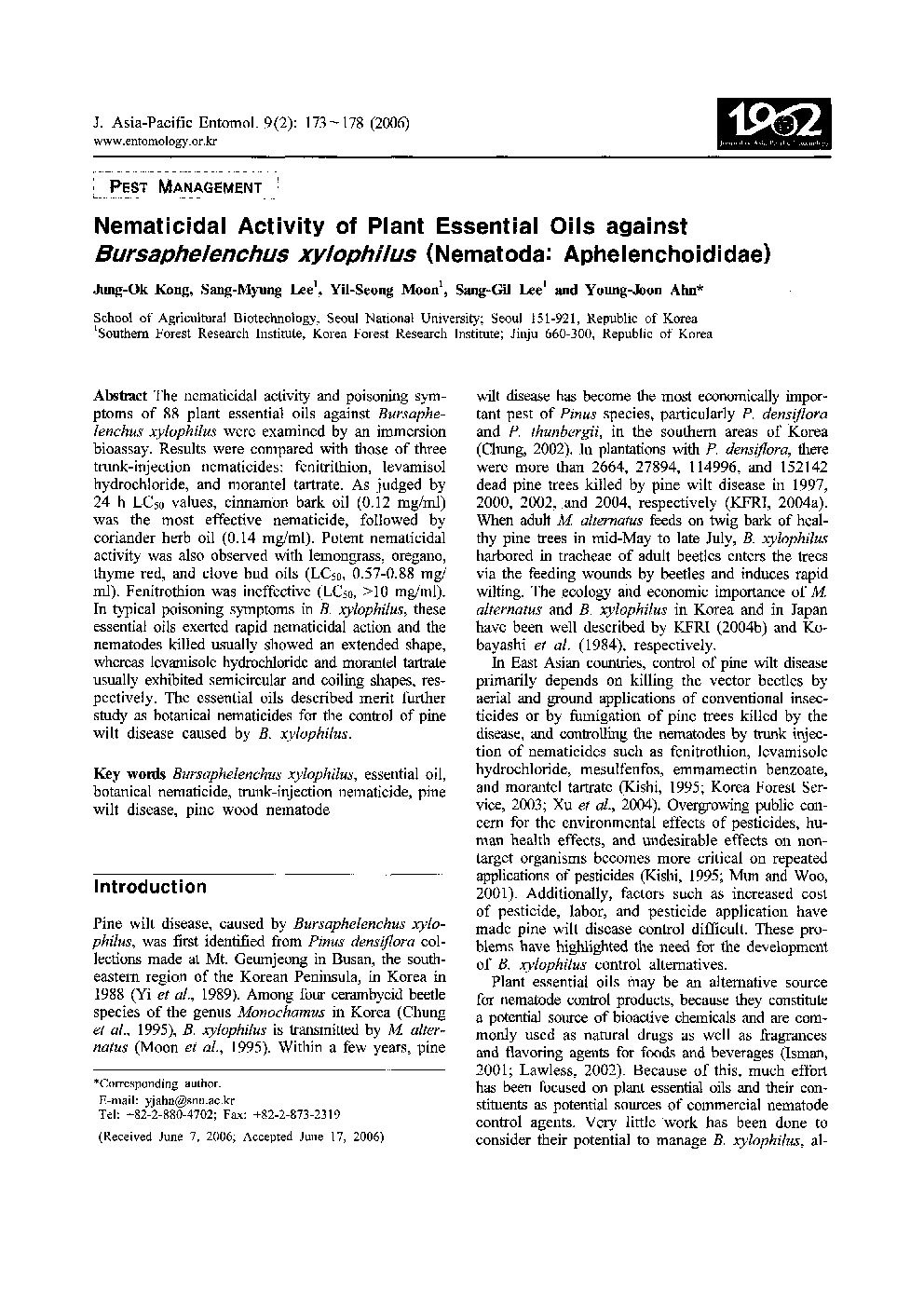| Article ID | Journal | Published Year | Pages | File Type |
|---|---|---|---|---|
| 4525192 | Journal of Asia-Pacific Entomology | 2006 | 6 Pages |
The nematicidal activity and poisoning symptoms of 88 plant essential oils against Bursaphelenchus xylophilus were examined by an immersion bioassay. Results were compared with those of three trunk-injection nematicides: fenitrithion, levamisol hydrochloride, and morantel tartrate. As judged by 24 h LC50 values, cinnamon bark oil (0.12 mg/ml) was the most effective nematicide, followed by coriander herb oil (0.14 mg/ml). Potent nematicidal activity was also observed with lemongrass, oregano, thyme red, and clove bud oils (LC50, 0.57-0.88 mg/ml). Fenitrothion was ineffective (LC50, > 10 mg/ml). In typical poisoning symptoms in B. xylophilus, these essential oils exerted rapid nematicidal action and the nematodes killed usually showed an extended shape, whereas levamisole hydrochloride and morantel tartrate usually exhibited semicircular and coiling shapes, respectively. The essential oils described merit further study as botanical nematicides for the control of pine wilt disease caused by B. xylophilus.
